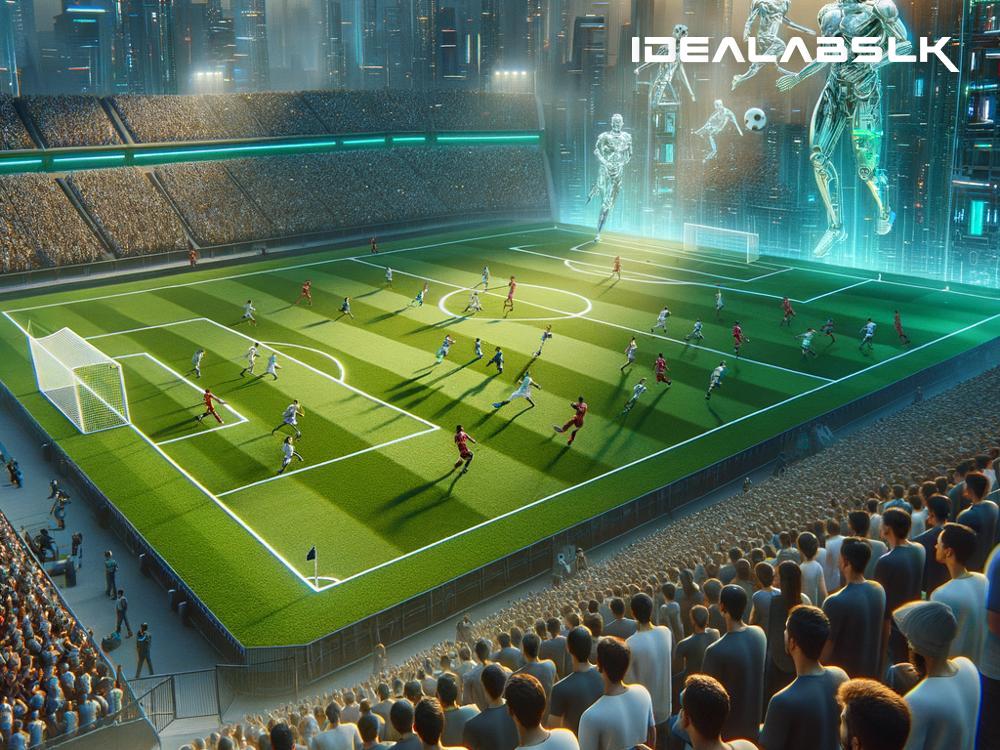How AI Will Enhance the Realism of Sports Simulation Games in 2025
The world of sports gaming has seen tremendous changes over the past few years, but the future looks even more exciting. By 2025, it’s expected that Artificial Intelligence (AI) will significantly enhance the realism of sports simulation games, making the gaming experience more immersive and life-like than ever before.
What is Sports Simulation Gaming?
First, let's define what we mean by sports simulation games. These are video games designed to simulate real-life sports as accurately as possible. They allow gamers to manage and play as their favorite teams or athletes, competing in digital versions of real-world arenas and leagues. From football and basketball to racing and golf, there's a simulation game for almost every sport you can think of.
Enter AI: The Game Changer
The introduction of AI into sports simulation games is set to revolutionize the genre in several ways. AI's capacity to learn, adapt, and make decisions based on vast datasets allows it to replicate human-like behavior with an unprecedented level of complexity and realism. Here are some of the ways AI is poised to enhance sports simulation games by 2025:
- Predictive Player Behavior and Decision Making
Imagine playing a soccer game where each player on the field makes decisions just like their real-life counterparts. AI will analyze data from thousands of real matches to understand and predict individual player behaviors and decision-making patterns. This means that AI-controlled players will react in-game based on their real-world strengths, weaknesses, and playing styles, adding a whole new layer of strategy and unpredictability to the games.
- Dynamic Crowd Reactions
What’s a sports game without the roar of the crowd? By 2025, AI will be able to generate dynamic crowd reactions that accurately reflect the ebb and flow of a game. The tone, volume, and even the chants of the crowd will change in real-time, depending on what’s happening on the field or court. This attention to detail will make every goal, point, or touchdown feel even more thrilling.
- Enhanced Commentary
Currently, sports games feature recorded commentary that, while impressive, can become repetitive over time. With AI, game commentary can evolve to be more dynamic and responsive. AI commentators will analyze the state of the game in real-time and deliver remarks that perfectly match the on-screen action with varied tone, emotion, and excitement levels. This will mimic the unpredictable and engaging nature of live sports broadcasts.
- Realistic Injury and Fatigue Systems
Player injury and fatigue systems in sports games have often been simplistic. But with AI, these systems will become far more realistic. AI can take into account a wide array of factors—like a player's injury history, their actions during the game, and even weather conditions—to dynamically generate accurate injury scenarios and simulate realistic player fatigue levels. This means managing your team’s roster and strategy will require more thought and attention, just like in real life.
- Better Graphics and Animations
While not exclusively an AI function, the development of AI technology contributes to the improvement of game graphics and animations. By 2025, AI algorithms will assist in creating hyper-realistic textures and animations, making players, stadiums, and even weather conditions look remarkably lifelike. Coupled with AI's behavioral predictions, the visual aspect of sports games will reach new heights of realism.
Conclusion: A New Era of Gaming
The integration of AI into sports simulation games represents a new era of gaming, one in which the line between the virtual and the real continues to blur. By 2025, gamers can expect experiences so realistic that they feel they are not just playing a game but truly stepping into the shoes of their favorite athletes and experiencing every high and low of professional sport.
The advancements in AI will not only make games more realistic but also more engaging, challenging, and, ultimately, more enjoyable for players of all levels. As we look forward to these innovations, one thing is clear: the future of sports simulation gaming is bright, and it's something gamers around the world have every reason to be excited about.

